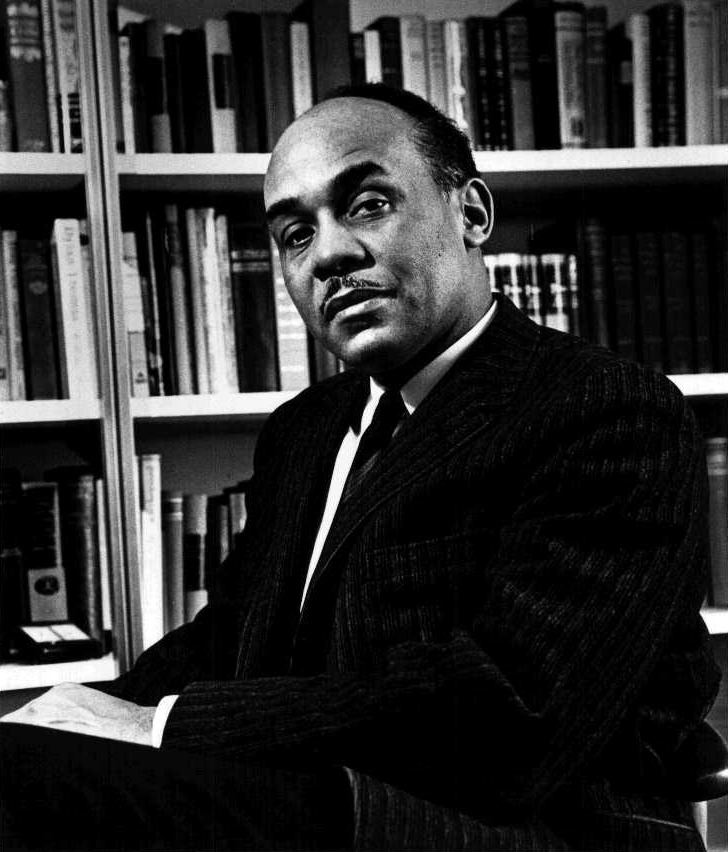Reviewing LeRoi Jones’s Blues People in The New York Review in 1964, Ralph Ellison wrote:
Perhaps more than any other people, Americans have been locked in a deadly struggle with time, with history. We’ve fled the past and trained ourselves to suppress, if not forget, troublesome details of the national memory, and a great part of our optimism, like our progress, has been bought at the cost of ignoring the processes through which we’ve arrived at any given moment in our national existence.
Ellison’s own work, from his celebrated 1952 novel Invisible Man to his stories, essays, and the unfinished novel published posthumously as Juneteenth, sought to record those troublesome details and question our national memory. “Ellison incessantly pondered the ways that race pervaded America and he wrote about them with originality and eloquence,” Robert Stone wrote in these pages in 1999. “But above all he was an artist.”
To celebrate the hundredth anniversary—or perhaps the ninety-ninth; accounts vary—of Ralph Ellison’s birth, we present a selection of pieces by him and about his work from the Review’s archives.
The Blues
Ralph Ellison
On Blues People by LeRoi Jones
February 6, 1964
Jones would take his subject seriously—as the best of jazz critics have always done—and he himself should be so taken. He has attempted to place the blues within the context of a total culture and to see this native art form through the disciplines of sociology, anthropology and (though he seriously underrates its importance in the creating of a viable theory) history, and he spells out explicitly his assumptions concerning the relation between the blues, the people who created them, and the larger American culture. Although I find several of his assumptions questionable, this is valuable in itself.
Ellison’s Essays
R.W.B. Lewis
On Shadow and Act
January 28, 1965
The experiences of writing Invisible Man and of vaulting on his first try “over the parochial limits of most Negro fiction,” and, as a result, of being written about as a literary and sociological phenomenon, combined with sheer compositional difficulties, seem to have driven Ellison to search out the truths of his own past. Inquiring into his experience, his literary and musical education, Ellison has come up with a number of clues to the fantastic fate of trying to be at the same time a writer, a Negro, an American, and a human being.
Ellison’s Promised Land
Robert Stone
On Juneteenth
August 12, 1999
Juneteenth, in some ways, is like an old and stately house. As often with great mansions, to approach it is to enter into the spirit of another time. The fact that it remained unfinished gives it an air of dereliction. The tools and components of its construction lie about the floor. Its rooms seem long closed off, the formal furnishings are dusty and partly covered. Some walls are incomplete, others peeling. Entering we find ourselves in the atmosphere of a bygone age. There are rich but familiar fragrances and ghostly music.
Riffs
Darryl Pinckney
On Trading Twelves: The Selected Letters of Ralph Ellison and Albert Murray
January 11, 2001
Their style is defined by humor and their humor by amplified uproar, determined vitality, robust ironies. Yet these letters also reveal a quiet reverence for the artistry to be found in black culture, the belief that true art teaches control, not abandon, a faith in music as a “depository” of living American traditions, and their search for a literary equivalent.
The Visible Man
Darryl Pinckney
On Ralph Ellison: A Biography by Arnold Rampersad
June 14, 2007
He became something of a grand old man early on, while still in his fifties, so hoisted up was he by his literary achievement. He was beautifully dressed, elegant in manner, but a man’s man; someone welcomed in the highest academic circles and sought out by presidents. However, his desire to stand apart from, if not above, other black writers meant that he had to pretend he wasn’t worried some African-American was going to come along and top his performance before he had had the chance to outdo himself.



